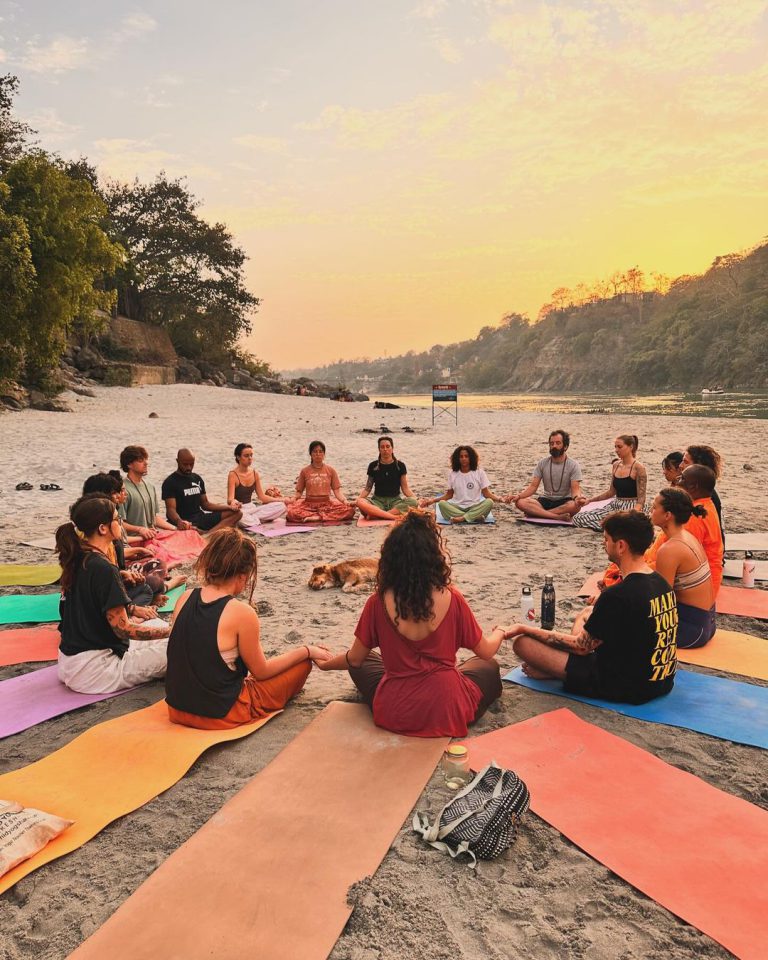Yoga For The Skeptic Person In Ashtanga Yoga
Yoga for the Skeptic: Exploring the Transformative Power of Ashtanga Yoga
Yoga has long been celebrated for its holistic approach to physical, mental, and spiritual well-being. However, for skeptics who may view yoga with uncertainty or doubt, Ashtanga yoga offers a unique entry point. In this article, we’ll explore how Ashtanga yoga, with its structured and disciplined approach, can be a welcoming path for those who approach yoga with skepticism. Whether you’re a beginner or someone who has reservations about the practice, read on to discover the transformative power of Ashtanga yoga.
Addressing Skepticism
It’s not uncommon for individuals to approach yoga with skepticism. The images of intricate poses, the cultural associations, and the seemingly mystical aspects can create a barrier for those who prefer a more pragmatic approach to fitness and wellness. Ashtanga yoga, however, stands out as a style that bridges the gap between traditional yoga practices and the practical mindset of skeptics. There are many reasons to love yoga even if you are sceptical.
Understanding Ashtanga Yoga
Ashtanga yoga, developed by Sri K. Pattabhi Jois, is a dynamic and physically demanding style that follows a specific sequence of postures. Unlike some other yoga styles, Ashtanga has a set sequence, allowing practitioners to progress at their own pace. This structured approach can appeal to skeptics, providing a clear and tangible framework for their yoga journey.
Key Elements of Ashtanga Yoga for Skeptics:
- Structured Sequence:Ashtanga yoga follows a predetermined sequence of postures, divided into primary, intermediate, and advanced series. This structured format provides a sense of order and progression, which can resonate with those who prefer a systematic approach to fitness.
- Focus on Breath and Movement:The practice of Ashtanga is characterized by the synchronization of breath and movement. Each pose flows into the next with specific breath patterns, creating a dynamic and rhythmic practice. This emphasis on the connection between breath and movement offers a tangible and grounded experience, aligning with the preferences of skeptical individuals.
- Physical Intensity:Ashtanga yoga is physically demanding, requiring strength, flexibility, and endurance. For skeptics who may question the effectiveness of a yoga practice, the challenging nature of Ashtanga can provide a clear answer. The physical intensity of the practice is a testament to its ability to build strength and improve overall fitness.
- Measurable Progress:As practitioners move through the sequences, they can witness tangible progress in their practice. Whether it’s mastering a challenging pose or advancing to the next series, the structured nature of Ashtanga allows individuals to measure their growth, providing a concrete and visible result.

Addressing Skeptic Concerns:
- Cultural Appropriation:Some skeptics may be concerned about cultural appropriation in yoga. Ashtanga, with its roots in traditional yoga, emphasizes the importance of respecting and understanding the cultural context. Practitioners are encouraged to delve into the philosophical aspects of yoga, fostering a deeper appreciation for its origins.
- Flexibility and Accessibility:Skeptics may worry about their ability to perform advanced poses. Ashtanga acknowledges that everyone’s journey is unique, and modifications are encouraged. With consistent practice, flexibility and strength will naturally improve, making Ashtanga accessible to individuals of various fitness levels.
- Mystical Perception:Yoga, at times, is perceived as having mystical or spiritual undertones. Ashtanga, while rooted in tradition, allows practitioners to engage with the practice at their own comfort level. The emphasis on breath, movement, and physicality provides a practical and grounded experience, demystifying any preconceived notions.
Check: 300 hour yoga ttc in Rishikesh
Practical Tips for Skeptics Starting Ashtanga Yoga:
- Start Slow:Begin with the primary series and gradually progress as you become more comfortable with the practice. This approach allows for a gentle introduction and prevents overwhelm.
- Focus on Breath:Pay close attention to your breath during the practice. The breath is a constant anchor that can help skeptics stay present and engaged, enhancing the mind-body connection.
- Set Realistic Goals:Establish achievable goals based on your current fitness level. Celebrate small victories and progress, and avoid comparing yourself to more advanced practitioners.
- Explore Philosophy:Delve into the philosophical aspects of Ashtanga yoga at your own pace. Understanding the principles behind the practice can provide a deeper sense of purpose and connection.
Benefits of Ashtanga Yoga for Skeptics:
- Physical Fitness:The physically demanding nature of Ashtanga yoga contributes to improved strength, flexibility, and cardiovascular health. Skeptics can witness tangible changes in their fitness levels over time.
- Stress Reduction:The synchronization of breath and movement, combined with the meditative aspects of the practice, can effectively reduce stress and promote relaxation. Skeptics may find relief in the tangible impact on their mental well-being.
- Structured Routine:The structured nature of Ashtanga provides a routine that can be appealing to skeptics. Consistent practice becomes a habit, contributing to overall well-being.
- Community Support:Joining an Ashtanga community or class can provide a sense of camaraderie and support. Practicing with like-minded individuals can ease skepticism and create a positive and encouraging environment.
Ashtanga yoga offers a pragmatic and structured approach for skeptics to explore the transformative power of yoga. By embracing the benefits of a structured sequence, focusing on breath and movement, and addressing common concerns, individuals can experience the physical, mental, and emotional advantages of Ashtanga yoga. Whether you’re a skeptic dipping your toes into the world of yoga or someone seeking a dynamic and challenging practice, Ashtanga provides a welcoming path towards holistic well-being. Embrace the journey, stay open-minded, and allow the transformative power of Ashtanga yoga to unfold in your life.







